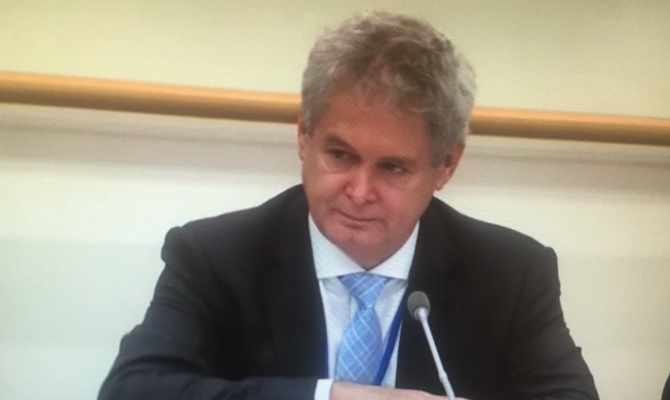KABUL: As Kabul makes global headlines for being on the brink of running out of water, experts say the crisis stems not only from natural and local causes, but also decades of unsustainable foreign projects and mismanagement of aid.
About one-third of Afghanistan’s population — around 12.5 million people — lack reliable access to water, according to the latest data from the UN Assistance Mission in Afghanistan.
In the country’s capital, the situation is even worse, with the UN expecting that by 2030 its aquifers could dry up — a projection that has been in international media since last month, as that would make Kabul the first modern city to run out of water.
“Without urgent action, like bringing in surface water from other basins, Kabul risks facing a severe crisis, potentially a ‘Day Zero’ like Cape Town experienced a few years ago,” Obaidullah Rahimi, an Afghan scholar whose doctoral research at the University of Kaiserslautern-Landau focuses on urban water management, told Arab News.
“The city’s groundwater can only cover about 44 million cubic meters — enough for just 2 million people at a modest per capita consumption of 50 liters per person per day.”
This means that less than 30 percent of Kabul’s 6.5 million residents have access to the WHO’s basic water requirement to ensure minimum essential needs for health, hygiene, and basic consumption.
Years of excessive and unregulated groundwater extraction, combined with prolonged drought, shrinking rainfall, and the thinning of the Hindu Kush snowpack — the primary natural source for the city’s rivers and aquifers —have pushed Kabul to the edge.
But these problems are not new and have only worsened as they have not been addressed over the two decades, when Afghanistan was occupied by foreign forces following the US invasion in 2001.
Despite the billions of dollars that entered the country in foreign development projects, Kabul’s water management systems were hardly touched.
“A significant portion of this aid was spent on short-term, small-scale projects without considering future impacts on the water balance of the Kabul basin and failed to establish large-scale water conservation infrastructure that could maintain and preserve this balance,” Rahimi said.
Dr. Ahmad Shah Frahmand, a geographic information systems and remote sensing expert specializing in mapping changes in water surface areas, said that also the way the projects were implemented, along with the lack of knowledge transfer, prevented them from having a lasting impact.
“International donors funded networks and pipelines across Kabul, often constructed by foreign contractors with little local involvement. But within just a few years, many of these systems fell into disrepair due to poor construction and a lack of oversight,” he told Arab News.
“One of the biggest failings was the focus on short-term fixes over long-term solutions. Aid money was frequently funneled into demonstration projects — temporary wells, pilot programs, or highly visible installations that offered quick results but little durability. Meanwhile, large-scale infrastructure like dams, reservoirs, and water treatment plants received far less attention and funding.”
According to Frahmand, less than 10 percent of the water sector budget was spent on training and maintaining local staff.
“Without skilled technicians, engineers, and maintenance crews, even well-built systems can crumble. And in Kabul, many already have,” he said.
A report published by the US Special Inspector General for Afghanistan Reconstruction in 2020 — a year before the withdrawal of American-led forces from Afghanistan — estimated that at least 30 percent of reconstruction aid, or $19 billion, was lost to waste, fraud, and abuse.
Additional audits by the oversight agency suggested the true figure may have been 40 percent due to corruption and mismanagement.
As foreign donors have left the country and international sanctions have been slapped on it since 2021, when the Taliban took over after the US forces withdrew, there are no funds for big infrastructure projects, especially as Afghanistan is already facing several other humanitarian crises.
“In a country desperate for stable infrastructure, these funds could have transformed lives. Instead, many projects stalled, failed, or were quietly abandoned,” Frahmand said, highlighting how urgent redesigning Kabul’s water systems has been, as the city has not seen a comprehensive water management plan since 1978.
“Kabul’s infrastructure was never built for the population it now serves. The existing water supply system, designed decades ago for a much smaller population, can no longer meet basic demand. Millions of Kabul residents now rely on tankers, private vendors, or unsafe wells to access water.”
By 2030, as many as 2 million people could be forced to leave Kabul in search of water, according to projections by the UN refugee agency. Water loss could lead to the extinction of local fish species and a collapse of biodiversity in the region.
“The agricultural sector is already under immense pressure. The Food and Agriculture Organization forecasts a 40 percent drop in crop yields across Kabul province by 2035. For a population already grappling with food insecurity, this decline could tip entire communities into hunger and poverty,” Frahmand said.
“If urgent action is not taken, the coming decade could bring irreversible social, environmental, and economic consequences that reshape the city and the lives of those who remain in it.”



























